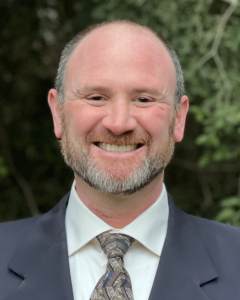Focus on RO: RO Qualifying Exam To Increase Coverage of Benign Diseases
By Michael Yunes, MD, ABR Associate Executive Director of Radiation Oncology
December 2024;17(6):9

The ACGME Program Requirements for Graduate Medical Education in Radiation Oncology were last updated in 2023. Section IV.C.4 outlines the residency requirements of general disease sites with a specific comment that residents must have experience with the “treatment of benign diseases for which radiation is utilized.”
The ABR has included questions on radiation oncology (RO) initial certification exams related to benign diseases involving the central nervous system as well as the head and neck for several decades. These include questions about diagnoses such as meningiomas, pituitary adenomas, schwannomas, glomus tumors, and arteriovenous malformations. In clinical practice, many radiation oncologists also must be familiar with other nonmalignant processes such as keloids, heterotopic bone, Dupuytren’s disease, osteoarthritis, and Graves ophthalmopathy. These are covered in residency programs.
The 67th ASTRO annual meeting in September 2025 is titled Rediscovering Radiation Medicine and Exploring New Indications. President Sameer Keole, MD, is clearly focused on ensuring that professionals in radiation oncology and other fields are aware of indications for radiation treatment in the nonmalignant space. With this emphasis in mind, as well as the increasing visibility of radiation for benign or nonmalignant diseases, the ABR Board of Trustees has begun to incorporate more of this subset of cases into the RO board certification exams.
As presented at the 2023 ASTRO annual meeting, benign diseases will have representation in the 2025 Qualifying Clinical Exam as part of the hematologic malignancies and benign disease category. The addition of benign diseases into the Oral Certifying Exam is expected to begin in 2026. The intent is to focus on the most common processes treated with radiation. Questions regarding presentation, evaluation, treatment decisions, and treatment planning as well as prognosis and toxicities should be expected. Program directors and residents will not be expected to understand the complex milieux of biological and molecular causes of diseases unless there is a clear understanding in the field, such as with Graves ophthalmopathy.
The ABR Board of Trustees is committed to continuously reviewing and assessing the topics encompassed by the exams. The addition of benign diseases is the next step in updating these topics as they reflect the changing landscape of radiation oncology.



